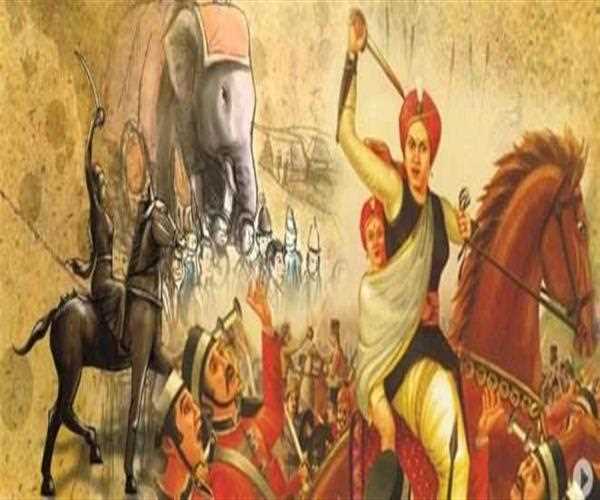*Rani Lakshmi Bai*

Sir Hugh Rose, who was directing the British armed force, requested the city to be surrendered with the risk that it would be obliterated. Lakshmibai declined to surrender and went ahead to safeguard Jhansi from the British.
The British besieged the post on March 24th, yet were met with overwhelming flame consequently. Jhansi sent a demand to Tatya Tope (a celebrated Maratha pioneer in the First War of Independence) for help. A multitude of 20,000 officers headed by Tatya Tope achieved Jhansi, yet was not able to coordinate to the British powers. Battling proceeded and, when Lakshmibai understood that protection in Jhansi by her armed force was not bringing about anything, she chose to leave Jhansi and unite with Tatya Tope and Rao Sahib (nephew of Nana Sahib, a Maratha privileged person who drove the First War of Independence).
She alongside her child got away from Jhansi one night and achieved Kalpi where she united with Tatya Tope over here. Here, they involved the town and arranged for its protection. The British assaulted Kalpi on May 22nd, 1858 and Lakshmibai and Tatya Tope was vanquished. The pioneers of this protection, Lakshmibai, Rao Sahib, the Nawab of Banda and Tatya Tope fled to Gwalior where they joined the Indian powers who were guarding the city. Lakshmibai and her group needed to possess the Gwalior Fort for its vital area, however, Lakshmibai was unsuccessful in endeavoring to persuade the renegade pioneers in the territory to ensure Gwalior against the British.
On June sixteenth, 1858, General Rose's powers attached to Morar. On June seventeenth of that year, close to Phool Bagh in Gwalior, British troops under Captain Heneage battled Indian powers being summoned by Lakshmibai as they were attempting to leave the region. Lakshmibai dressed as a man in a Sowar's uniform, totally furnished on horseback, with her baby child fixing to her back, started assaulting the British troops. The British assaulted back and Lakshmibai was egregiously injured. Since she didn't need her body to be caught by the British she advised a loner to incinerate her. Upon her passing on June eighteenth, 1858, her body was incinerated according to her desires. Three days after the demise of Lakshmibai, the British caught the Fort of Gwalior.
Lakshmibai's name lives on appropriate till this day and a medicinal school in Jhansi, the Maharani Laxmi Bai Medical College is named after her. Aside from that, a ladies' unit of the Indian Army has been named the Rani of Jhansi Regiment. Lakshmibai has additionally motivated ages of artists, essayists and movie producers who have attempted to catch the pith of who Lakshmibai truly was. The most well-known sonnet formed on the Rani remains the one composed by Subhadra Kumari Chauhan, titled "Jhansi Ki Rani", which is a to a great degree moving record of Lakshmibai's life and her exhibition of bravery and how she battled valiantly till the very end.
Cheers!